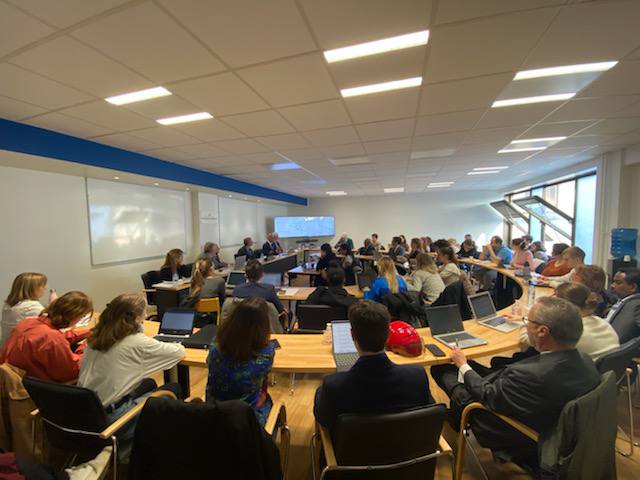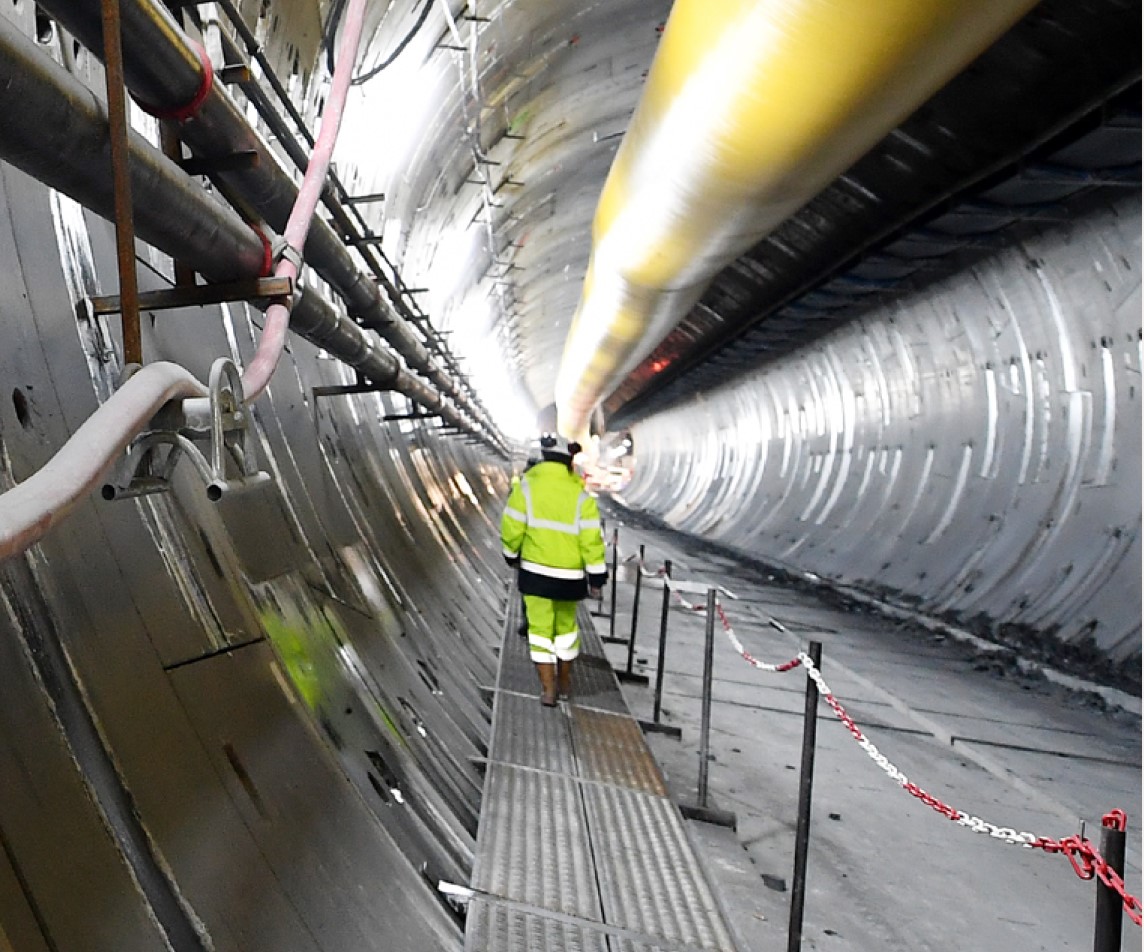The Lyon-Turin tunnel, a great opportunity for growth for Europe: context and legal issues. This was the title of the conference held on Wednesday 19 October at the prestigious Centre Panthéon of the Sorbonne.
TELT was present with its legal director Alexandre Morey, who explained to the numerous participants – students, professors, lawyers, institutions and exponents of civil society – the functioning of the binational legal and contractual framework adapted to the exceptional nature of the cross-border project.
The seminar
Starting from the assumption that a major territorial planning initiative such as the new Turin-Lyon railway line presents a complex and innovative legal framework, the various speakers and professors from the Sorbonne addressed a range of legal issues, in particular with regard to administration, urban planning, international and environmental law, as well as questions relating to work organisation and public procurement.
The first speaker was Maurice Carraz, member of the board of GRIDAUH from 1996 to 2013 and former director general of the Fédération nationale des offices publics de l’habitat, who opened the conference by describing the complexity of the legal framework of a major public project.
Louis Besson, former French Minister for Housing and Transport and co-chairman of the Lyon-Turin Intergovernmental Committee from 1991 to 2021, recalled the importance of Franco-Italian cooperation in the construction of this exceptional European project.
Isabelle Hasquenoph, professor of public law at the Sorbonne, spoke on the subject of public procurement and measures to prevent the risk of corruption.
Guy Urban, head of the Lyon-Turin project at the OPAC de Savoie, presented an overview of the social housing interventions carried out thanks to a territorial compensation agreement, within the framework of the so-called ‘Démarche Grand chantier’, organised with the support of the State.
Finally, Norbert Foulquier, professor of public law and director of GRIDAUH, concluded the session by taking stock of the ‘legal extensions’ of the base tunnel, addressing the issue of the appeals lodged over the years by environmental associations and groups, all of which were rejected by the French Council of State.



